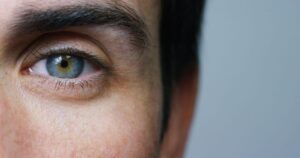Eye Safety Tips During the COVID-19 Pandemic
 First and foremost, Dr. Albert Cytryn and our staff at Cytryn Eyelid & Facial Plastic Surgery would like to extend our thoughts and well-wishes to all those affected by COVID-19—whether physically, financially, or emotionally. Stay strong and find hope in the progress being made in areas initially impacted, both in this country and around the globe. We will get through this difficult time.
First and foremost, Dr. Albert Cytryn and our staff at Cytryn Eyelid & Facial Plastic Surgery would like to extend our thoughts and well-wishes to all those affected by COVID-19—whether physically, financially, or emotionally. Stay strong and find hope in the progress being made in areas initially impacted, both in this country and around the globe. We will get through this difficult time.
It’s well-known that the novel coronavirus often enters the body through the nose and mouth, which is why wearing a facemask is strongly recommended when going out into public. What’s less common knowledge, however, is that the eyes can also be a gateway into the body for COVID-19, despite not being directly connected to the respiratory system.
Virus particles contained in the spray of a coronavirus carrier’s cough, sneeze, or even speech can potentially reach the face of anyone within a close enough range. While these particles are most likely to be inhaled through a bystander’s nose or mouth, there’s a chance they also land in—and therefore enter the body through—unprotected eyes. Furthermore, if a person were to touch something contaminated with COVID-19 and then touch their eyes before handwashing, the virus can make the transition from the fingers, to the eyes, and into the body.
With this information in mind, we’ve put together the following eye safety tips to heed during the coronavirus pandemic:
- Avoid touching or rubbing your eyes. It’s easier said than done, of course, but since passing the virus from the hands to the eyes is a real concern, try to be extra cognizant about limiting excessive eye contact. In the event you must touch your eyes (say, to alleviate itching or to adjust your glasses), wash your hands with soap and water for at least 20 seconds before and after eye contact—or better yet, use a tissue or wipe in lieu of your fingers. It can also be a good idea to keep your eyes moisturized with eye drops to help proactively minimize irritability, particularly if you normally suffer from dry eyes.
- If you are typically a contact lens-wearer, consider switching exclusively to glasses for now. Although there is no current evidence to suggest that wearing contacts increases one’s risk of contracting COVID-19, contact-wearers tend to touch their eyes more often due to increased irritation and the need to place and remove the lenses each day. For obvious reasons, wearing glasses helps to limit direct touching of the eyes on a daily basis.
- If you still choose to wear contacts, follow recommended hygiene guidelines extremely closely. This includes—but is not limited to—washing your hands with soap and water for at least 20 seconds prior to placing or removing your lenses, utilizing fresh contact solution to disinfect and soak your lenses after each use, and wearing your contacts no longer than the specified timeframe before removing and/or replacing them. A full list of contact lens hygiene instructions can be found on the American Optometric Association’s website here.
- Whenever possible, wear sunglasses or eyeglasses when out in public. While they may not provide 100 percent protection, sunglasses and eyeglasses can at least help partially block respiratory droplets sprayed by a sneeze or cough from reaching the eyes. Wrap-around sunglasses are even better than normal shades, as they have the added benefit of increased side exposure protection.
- Disinfect your glasses and/or sunglasses daily. Most eyeglasses and sunglasses can be cleaned using basic dish or hand soap and warm water. Make sure to gently rub all sides of the lenses and frames for a minimum of 20 seconds, and rinse thoroughly with warm water once complete. To dry, a clean, microfiber cloth is typically recommended.
- Put together an eye care travel kit. When you don’t have access to soap and water for handwashing, having sanitary supplies on-hand is a great backup in the event you need to touch your eyes. Some essentials to keep nearby include hand sanitizer, tissues, face wipes, and moisturizing eye drops. Remember: it’s best to utilize either tissues or wipes to do any direct touching of the eyes, but if you must use your fingers, clean them with hand sanitizer both before and after (assuming soap and water are not available). As previously mentioned, moisturizing eye drops can be a good way to proactively manage potential eye irritation, therefore helping limit the need to touch or rub your eyes throughout the day.
Of course, in addition to these tips, it’s incredibly important to practice social distancing and attempt to optimize your full body wellness by eating a healthy diet and exercising on a regular basis (if you are cleared to do so by your primary medical provider). In the event you can’t avoid coming into contact with someone who is (or who you believe might be) infected with the coronavirus—for instance, if you are providing care to a loved one—be sure to wear the appropriate personal protective equipment (PPE), including safety eyewear.
Dr. Cytryn and our team hope you find these tips to be helpful during this unprecedented time, and we again want to extend our thoughts and well-wishes to anyone affected by COVID-19. Stay well, stay safe, and stay strong!
